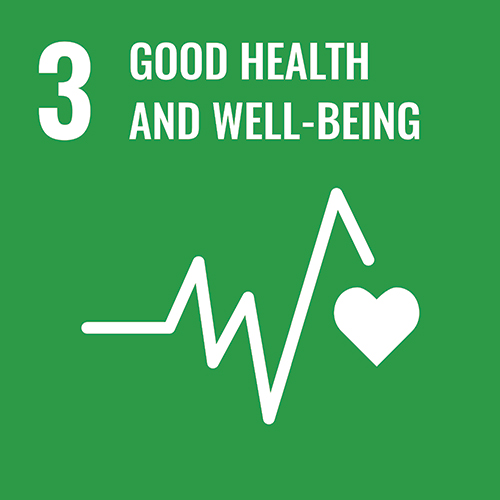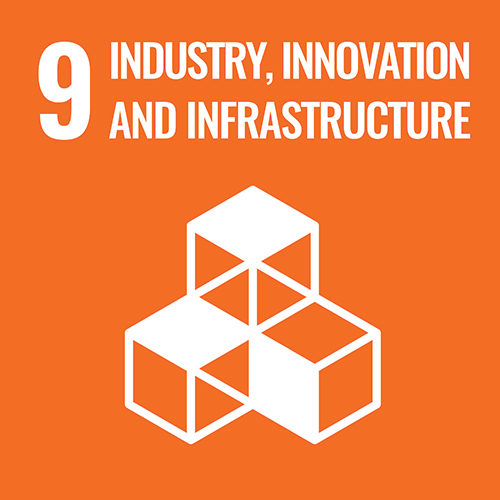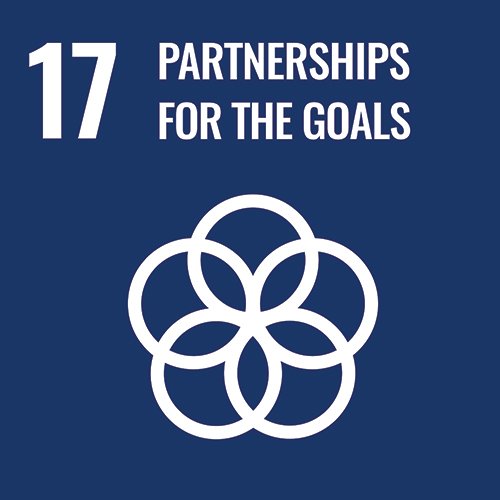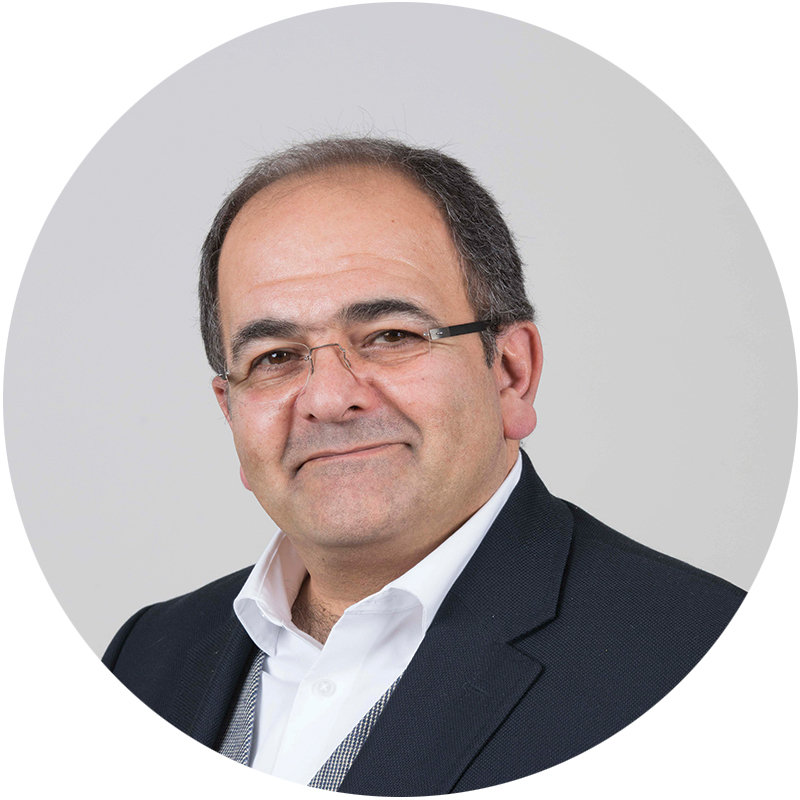01/ SOCIETY (2022)

01/
OUR
COMMITMENT
TO SOCIETY
AT STALLERGENES GREER “PATIENT NEEDS DRIVE OUR INNOVATION TO FIGHT AGAINST ALL KINDS OF ALLERGIES”.
The societal pillar of our corporate responsibility approach includes four key programme commitments which contribute to better meeting the needs of patients and healthcare professionals by fostering innovation and collaboration.
We are driven to advance allergy care treatments and delivery modes.
We work with patients and the medical community to better meet their needs, and establish collaborations with leading organisations to develop cutting edge technologies and progress scientific knowledge.
Our contribution to the UN SDGs



ONE/
ACCELERATE RESEARCH TO OFFER A COMPREHENSIVE PORTFOLIO OF INNOVATIVE AND PERSONALISED SOLUTIONS AGAINST ALLERGIES
Investing in real-world studies
Stallergenes Greer has conducted a large number of clinical studies, involving more than 9,000 patients. Real-world studies, which include larger patient populations and better reflect “real life” patient profiles, are also used by Stallergenes Greer to further evidence allergen immunotherapy (AIT) treatments beyond clinical trials.
In 2022, Stallergenes Greer announced positive data from its EfficAPSI study, the largest retrospective real-world, longitudinal cohort study regarding sublingual liquid AIT. Its objective is to evaluate the real-life impact of sublingual liquid AIT on the onset and worsening of asthma in patients with allergic rhinitis. This study included more than 100,000 patients in France with allergic rhinitis, with or without asthma, treated with sublingual liquid AIT and symptomatic drugs, and more than 330,000 patients with allergic-rhinitis, with or without asthma, treated with symptomatic drugs only.
Including EfficAPSI, Stallergenes Greer has five real-world studies underway: BREATH launched in 2017 (to evaluate the efficacy of sublingual AIT tablets); CORAP (to evaluate the impact of AIT on the quality of life of patients); MaDo (to retrospectively analyse the needs, reasons, modalities and impacts of AIT dose adjustment); and PRACTIS (to evaluate the benefits of sublingual AIT in current practice according to the different methods of use and the type of allergen).
A collaborative approach to innovation
Stallergenes Greer leverages open innovation to continue to advance precision medicine for the benefit of patients and healthcare practitioners. In 2022, new research collaborations focusing on the identification of biomarkers of AIT efficacy were initiated with world-leading organisations such as Imperial College London and the Swiss Institute of Allergy and Asthma Research (SIAF). These collaborations will deepen knowledge of the physiopathology of allergic diseases and the biological effect of AIT, and their results could be applied in the routine practice of allergology. Additional collaborations are ongoing, such as the one with Alyatec, a contract research organisation (CRO) based in Strasbourg University Hospital (France), which leverages the CRO’s new generation environmental exposure chamber to assess the mode of action of allergy treatment solutions.
iPUMP: a connected AIT delivery system
Because non-adherence to an AIT schedule and premature discontinuation of treatment remain a challenge in AIT management, Stallergenes Greer, in partnership with Aptar Pharma, developed iPUMP. iPUMP is a connected drug delivery system and companion mobile app aimed at improving observance and adherence to optimise patient treatment outcomes. The development of iPUMP illustrates our investments in innovation to provide a large range of precise personalised AIT options adapted to the needs and lifestyle of patients. After a pilot phase during which patients will test the system, our aim is to make iPUMP available in France in 2023 and to progressively roll out in other markets.
TWO/
CONTRIBUTE TO GATHERING SCIENTIFIC AND MEDICAL KNOWLEDGE ON ALLERGIES AND THE SOCIOECONOMIC IMPACT OF AIT
Sustaining our philanthropic efforts
Advancing allergy care and scientific knowledge for the benefit of allergy sufferers and the medical community are part of our DNA. In early 2023, we relaunched the Stallergenes Greer Foundation, which was created in 2013, to further strengthen our engagement towards our stakeholders via a long-term philanthropic approach. Learn more about our foundation in the dedicated section of this report.
Engaging with global health experts and raising awareness about allergies
Participating in scientific congresses allows for essential scientific exchange on the latest research and gaining insight from healthcare professionals while contributing to improve how we develop and deliver our AIT treatments to patients and the medical community.
In 2022, Stallergenes Greer participated and/or sponsored, four international congresses (EAACI, ACAAI, APAAACI and ANACARE) and 20 local ones.
We also continued to develop our online conferences and webinars for healthcare professionals to share information, recommendations and scientific updates in the field of allergology. Our Stall’Web conferences were attended by more than 200 physicians in 2022.
Since 2019, Stallergenes Greer organises annual AIT training sessions, Go Beyond, hosted by key external experts for young healthcare professionals with the aim of contributing to the dissemination of knowledge about allergy care pathways and sharing best practices to enhance patient care.
THREE/
ENSURE PATIENT SECURITY AND TREATMENT SUPPLY
Sustained investments in our industrial tool
Over the past years, we have made continuous improvements to our manufacturing capabilities, both in France and the U.S., to maintain manufacturing and quality systems that meet the highest product quality and security standards.
In 2022, our Antony (France) facility implemented a state-of-the-art packaging line for Staloral® to upgrade its production tool. The line improves the overall packaging process reliability while securing supply ability and contributing to packaging securisation.
Securing our supply chain
We have adopted an integrated approach to the sourcing of our raw materials, the production of our treatments and their distribution. For house dust mites we grow the two key species responsible for allergies: Dermatophagoides farinae (American house dust mite) and Dermatophagoides pteronyssinus (European house dust mite) at our Antony (France) site.
For grass, we grow, harvest and purify five species of grasses (sweet vernal, orchard, perennial rye, timothy, Kentucky blue grass) on 90 hectares of land in Amilly (France) which represent many of the natural exposure and sensitisation conditions of grass-pollen allergic patients.
In the U.S., our Mathiston, Mississippi, facility grows, harvests and collects over 75 different types of pollen on more than 56 hectares of land. For mould, the mycology department in Lenoir (North Carolina) prepares fungi for extraction and can grow more than 60 different fungal cultures. To assure long-term supply and safety stock, we maintain stock cultures of our moulds, stored as either oil overlays or lyophilised plugs.
FOUR/
JOIN EFFORTS WITH PATIENTS AND PRACTITIONERS TO ENHANCE THE QUALITY OF LIFE OF ALLERGY SUFFERERS AND IMPROVE THE PATIENT JOURNEY
Including the patient’s voice
We are committed to understanding the needs of patients. We ensure that their voice is included in our decisions by collaborating with patients and patient associations for the development of innovative products or services, such as iPUMP, and in our research programmes.
For example, our CORAP programme, which evaluates the impact of AIT on the quality of life of patients, directly involves patients in Stallergenes Greer’s research projects. The programme includes a research plan which aims to provide additional knowledge about the various types of respiratory allergies via clinical projects and real-world data. Patients undergoing our AIT treatments can join the CORAP community, on a voluntary basis, and participate in the various stages of our research initiatives.
Digitalisation of patient services to improve ease of use
In France, following the implementation of our OrdoApsi platform which aims to facilitate the prescription flow, a new generation CRM (electronic management of patient documents and order flow) was implemented in 2022. The objective of the CRM is to track each step of treatment orders for named patient products to better respond to any questions patients may have, from the creation of the administrative file for third-party payment, to the delivery of the treatment.
Developing patient resources
Because there are many things online about allergies and how they can be treated, it can sometimes be difficult to navigate the profusion of information and, more importantly, confirm that it is accurate. To assist patients with allergies and healthcare professionals, Stallergenes Greer launched the AIT Network (www.theaitnetwork.com). Developed, in partnership with a group of external scientific experts, the AIT Network is an educational platform where users can find scientifically credible educational content and up-to-date news on allergies.
In France, our personalised patient support programme launched in 2021 improves the patient’s follow up with dedicated calls to patients and targeted emails throughout the treatment journey. 1,690 patients have already subscribed to this tailored support service. In the U.S., Stallergenes Greer launched www.petsgetallergies.com to raise awareness among pet owners that the signs their pet is showing may be due to allergies. Pet owners can also use the Veterinary Dermatologist Finder to locate a specialist near them so that they can easily reach out to them and initiate a conversation about their pet.

“Ensuring the safety, efficacy and high quality of our AIT treatments is a priority. We are committed to joining efforts with physicians, experts and cutting-edge organisations to push the boundaries of science for the benefit of patients.”
AMER JABER
Executive Vice President,
Operations Europe
